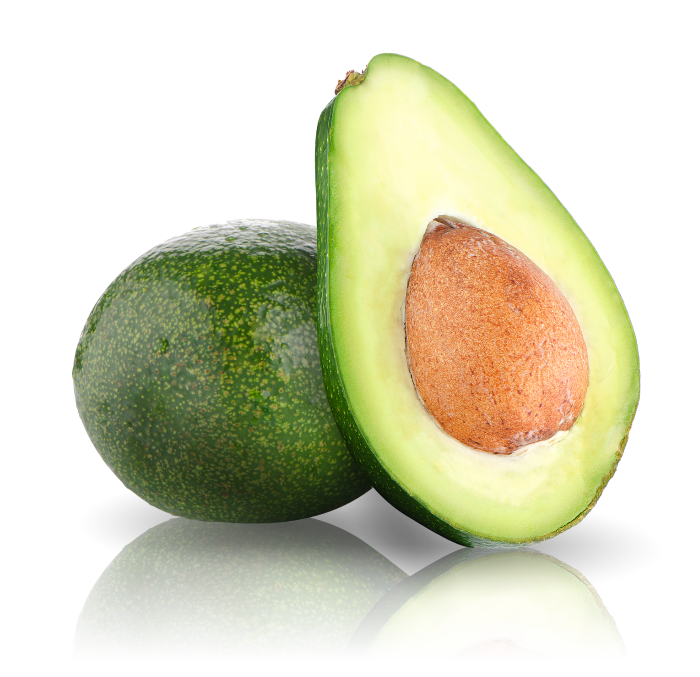Take a step into the kitchen of any self-professed “healthy” person, and you’re likely to find a bottle of olive oil proudly displayed on the counter. If said person generously extends an invitation for you to stay for dinner, chances are they’ll bust out that glorious bottle of olive oil and use it to fry up a nice lean steak or perhaps make a stir fry consisting primarily of tofu.
On the surface, this all might seem healthy but it’s not. First, if the meat is from a quality source, it should be fatty not lean — the fat is where all the nutritional benefits of the cut are, and saturated fats from sources such as this are good for you!
Second, who eats tofu anymore? It’s generally made from GMO soy, which aside from creating hormonal imbalance in your body is an incredibly inferior source of protein when compared to meat. The third thing wrong with this dinner situation is that your friend is using olive oil for cooking. If they really knew about healthy living, they’d know that olive oil does not do well with heat. The fats contained in olive oil break down and oxidize when exposed to sustained heat, the oxidized version of which is damaging to your health, and can even contribute to the development of cancerous cells in your body.
Yes, olive oil is an excellent source of monounsaturated fat and has a great nutritional profile, but the benefits of this oil can only be enjoyed when it isn’t used for high-heat cooking — which means a replacement oil should be used.
Luckily, another oil possesses all the health-promoting abilities of olive oil, plus a few extras, and holds up well under heat. Yes, it turns out that the same guacamole-giving fruit can also provide one of the healthiest and most versatile cooking oils available. Here’s a few reasons why avocado oil is far superior to olive oil for cooking, and for just about anything else.
1. Avocado oil has a high flash point
Flash point, otherwise known as smoke point in some circles, is the temperature at which a given oil begins to break down when heat is applied. When an oil reaches its flash point, compounds called lipid oxidation products (LOP) form. These LOPs are bad news for your health, undermining the stability and structure of cell membranes, destroying the collagen that keeps your skin and ligaments supple, and oxidizing the cholesterol in your body.
In essence, they encourage free radicals to run rampant in your body, resulting in a greater potential for you to develop cancer, heart disease, stroke and Alzheimer’s, along with significantly increasing the rate at which your body and skin ages.
Flash point, as you can probably tell by now, is kind of a big deal. And avocado oil has the highest flash point of them all, clocking in at an impressive 520 degrees Fahrenheit. Olive oil, with a flash point of around 400 degrees, doesn’t even come close. This means that avocado oil is the best cooking oil you can use for high heat cooking, which means basically anything cooked over a grill or in a frying pan.
2. Avocado oil both provides antioxidants and boosts their absorption
While we’re on the topic of free radicals, it’s worthwhile exploring the wonderful ability of avocado oil in providing an excellent assortment of antioxidants to your body when you eat it. How is this related to free radicals? Well, as mentioned earlier, free radicals damage or mutate the cells in your body via oxidative damage. If you break the word “antioxidant” down, you’ll discover that it literally means to stop oxidation. Therefore, the more antioxidants you’re supplying to your system, the less oxidative damage free radicals are likely to expose your body to.
Avocado oil is rich in antioxidants, with close to three times the amount of carotenoids found in olive oil. Carotenoids are a group of powerful antioxidants that protect your body from cancer, stop the formation of cataracts and can help slow the symptoms of aging. Avocado oil also has approximately 25 percent more vitamin E than olive oil, meaning it’s more effective in preventing free radical activity in your body and oxidative damage to your cholesterol.
But what’s an antioxidant if your body doesn’t possess the tools to utilize it? Often, the nutrients and antioxidants contained in fruits and vegetables don’t get passed on to us when we eat them because they require certain fat-based compounds to help our body absorb them. Avocado oil is one such source of fat, with studies showing that just one to two tablespoons of avocado oil can increase the carotenoid absorption ratio of certain vegetables, including lettuce, spinach and carrots, by 200 to 400 percent! So next time you make a salad, drizzle some avocado oil over the greens and reap the rewards.
3. Avocado oil tastes great and is super versatile
We all have our little quirks when it comes to how we like our food prepared, how it should taste, what flavors should be strong and what shouldn’t and so forth. Most people have specific preferences when it comes to cuisine, so it’s always handy to have an oil in the house that won’t offend anyone. Avocado oil fits the bill, having a mild aroma, creamy texture and rich yet subtle taste that doesn’t overpower food when cooked in or drizzled on. Really, nobody should have any cause for complaint when that creamy essence of avocado hits their lips.
For this reason, avocado oil is also a surprisingly versatile oil in the kitchen. Due to its high smoke point, it makes a great oil for sautéing vegetables and meat on the pan, stir-fries, grilling and marinating. It is obviously perfectly at home drizzled on salads or as the fat component of a salad dressing (the whole fruit of the avocado is amazing in salads, so why shouldn’t the oil be too?), and it makes a good replacement for butter or coconut oil in baking due to its subtle flavor. Can you say the same for olive oil?
4. Avocado oil maintains optimum heart health
These days, cardiovascular health is starting to get fairly high on people’s lists of health topics to be concerned about … possibly on account of the millions of people across the country who die from heart attacks, stroke or other forms of cardiovascular disease every year. Rather than turning to prescription drugs, which often address the symptoms of heart disease but don’t do anything to help the underlying cause, perhaps the answer lies with the humble avocado.
Avocado oil has a particularly high concentration of beta-sitosterol, a form of cholesterol utilized by our bodies to break down less healthy fats into more beneficial forms. What’s more, because avocado oil is highly anti-inflammatory, it works to prevent the buildup of plaque deposits on arterial walls, thereby lowering your risk of heart disease. This anti-inflammatory effect also means that your body is in a much better position to ensure your blood pressure remains at a healthy level.
5. Avocado oil actively kills cancer cells
We’ve already talked about how free radical activity in your body can result in cell damage or mutations, which in turn can lead to the development of cancerous growths. So, the fact that avocado oil provides a strong dose of antioxidants, including carotenoids, polyphenols, proanthocyanidins and tocopherols, and enables our bodies to use them more effectively, means that consuming avocado oil can go a long way toward protecting us from cancer.
But what’s even more impressive about avocado oil is its ability to directly target cells that have already turned cancerous and trigger their death. This process, known as apoptosis, means that avocado oil can actively inhibit cancer growth in your body, preventing spreading and even making cancerous growths or tumors smaller. If you’re worried about cancer, it’s probably time you popped down to your local supermarket and invested in a bottle of avocado oil.
How to get the most out of avocado oil
As mentioned earlier, you shouldn’t have any trouble integrating avocado oil into your life. You can typically find a good bottle of extra virgin avocado oil at the larger supermarket stores, or if not then take a stroll down to your local health food store and they’re bound to have some. You can drizzle it on salads or on top of steamed veggies to give them depth and flavor, mix it into cake and cookie batches to replace butter or coconut oil, use it as a frying oil for sautéing or stir-frying, use it in marinades and dressings and even rub it on your skin to keep it supple and hydrated.
Call to action: Now you know all about the health benefits of avocado oil inside your body, but what about external use? Click here to find out all the ways you can use avocado oil to nurture your hair and skin.
—Liivi Hess





